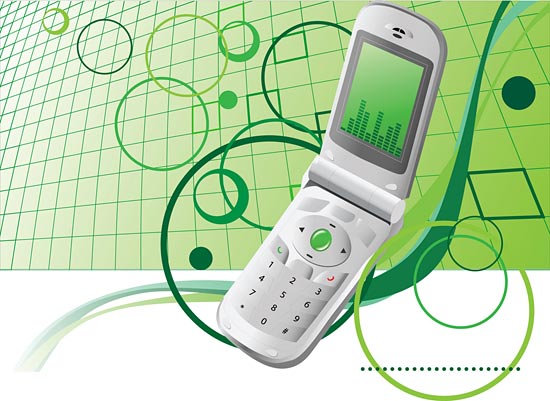
Image by BigStock Photo
Ready or not, the mobile revolution is upon us!
 There is a lot of hype out there about how many people own mobile devices and how much time people spend on them.
There is a lot of hype out there about how many people own mobile devices and how much time people spend on them.
Over the past two years, I’ve been charting and chronicling the rise of the mobile Web and the changes that it is unleashing on American society.
Let’s look at some overall numbers:
- Today there are 5.3 billion mobile device subscribers in the world.
- There will be nearly as many mobile devices as there are people in the world by 2015.
- There are 48 million people in the world who have mobile phones, even though they do not have electricity at home.
- Estimates are that we sent more than 8 trillion text messages last year.
So everyone has or will have a mobile device. Everybody needs a phone, right? What’s the big deal? What does this matter to our website optimization or online marketing efforts?
The following numbers reveal the impact more clearly:
- By 2012, almost all mobile devices produced will be able to access the Internet.
- There will be 788 million mobile-only Internet users by 2015.
- By 2014, mobile Internet browsing will surpass desktop browsing.
- Mobile ad revenue will skyrocket to $20.6 billion by 2015.
- Shopping on the mobile Web will reach $119 billion in 2015.
Now the issue is not that everyone has a mobile device, but that they all have Internet access via that device. Many of them access the Web only through their mobile device. More importantly, they are taking advantage of that access by searching, purchasing and clicking through on mobile ads at unprecedented rates.
This is great news for those of us who market on the Internet. But it can be equally bad news for those who are not prepared for this mobile opportunity.
Imagine that someone visits your website from their mobile device and your site loads so slowly the user just moves on to the next site in their search results. Or, perhaps your site eventually loads but with no images and with a gaping hole where that spiffy piece of Flash you paid so much for is supposed to play. Or worse, the user receives a message from her browser informing her that your site cannot be viewed on her mobile device. These are very possible scenarios for a website that is not mobile-ready.
There are many things you can do to get your existing website ready for the mobile web, as well as other tactics you can use to market within the mobile web. Stay tuned as we explore these tactics in more detail throughout 2012!
This post was paraphrased from Deltina Hay’s latest book, The Boostrapper’s Guide to the Mobile Web. The book will be released in May 2012, but you can request a review copy today. This post originally appeared on MobileWebSlinger.com.
Deltina Hay, a partner in Socialmedia.biz, is an author and educator who develops online curricula on social media and other Internet marketing topics. She also helps businesses prepare their content for semantic search and big data analysis. Contact her, follow her on Twitter and Google Plus, or leave a comment below.

Thank you for a great article. It give me some ideas, and yes you are right; mobile will be the future
I’m surprised that there are that many people who value a phone ahead of electricity. I have been told that mobile web is here. Less than 1% of my traffic on my websites and blogs come from mobile devices.
@Chris, It is amazing, isn't it? That many people have cell phones and no electricity. I heard on NPR that there are folks in those countries that drive around and charge cell phones using car batteries for a fee. Where there's a will…
I noticed my mobile traffic increase 10 fold on my sites once I used either a service, a plugin, or responsive design to make the sites mobile ready. The next article addresses the issue that sites that are not mobile ready will not place well in mobile searches. Kind of a chicken and egg thing…
Mobile web is the best, In addition to telephony, modern mobile phones also support a wide variety of other services such as text messaging, MMS, email, Internet access, short-range wireless communications (infrared, Bluetooth), business applications, gaming and photography. Mobile phones that offer these and more general computing capabilities are referred to as smartphones.
We have entered the mobile era of computing. And just like the previous eras – those of the mainframe, then the client-server and the PC – the mobile era is a fundamental shift with a new set of problems to solve. So, whether we like it or not we must adapt our environmental changes. Thanks for sharing!
<a href=”http://thejerkyconnection.com/”>beef jerky</a>